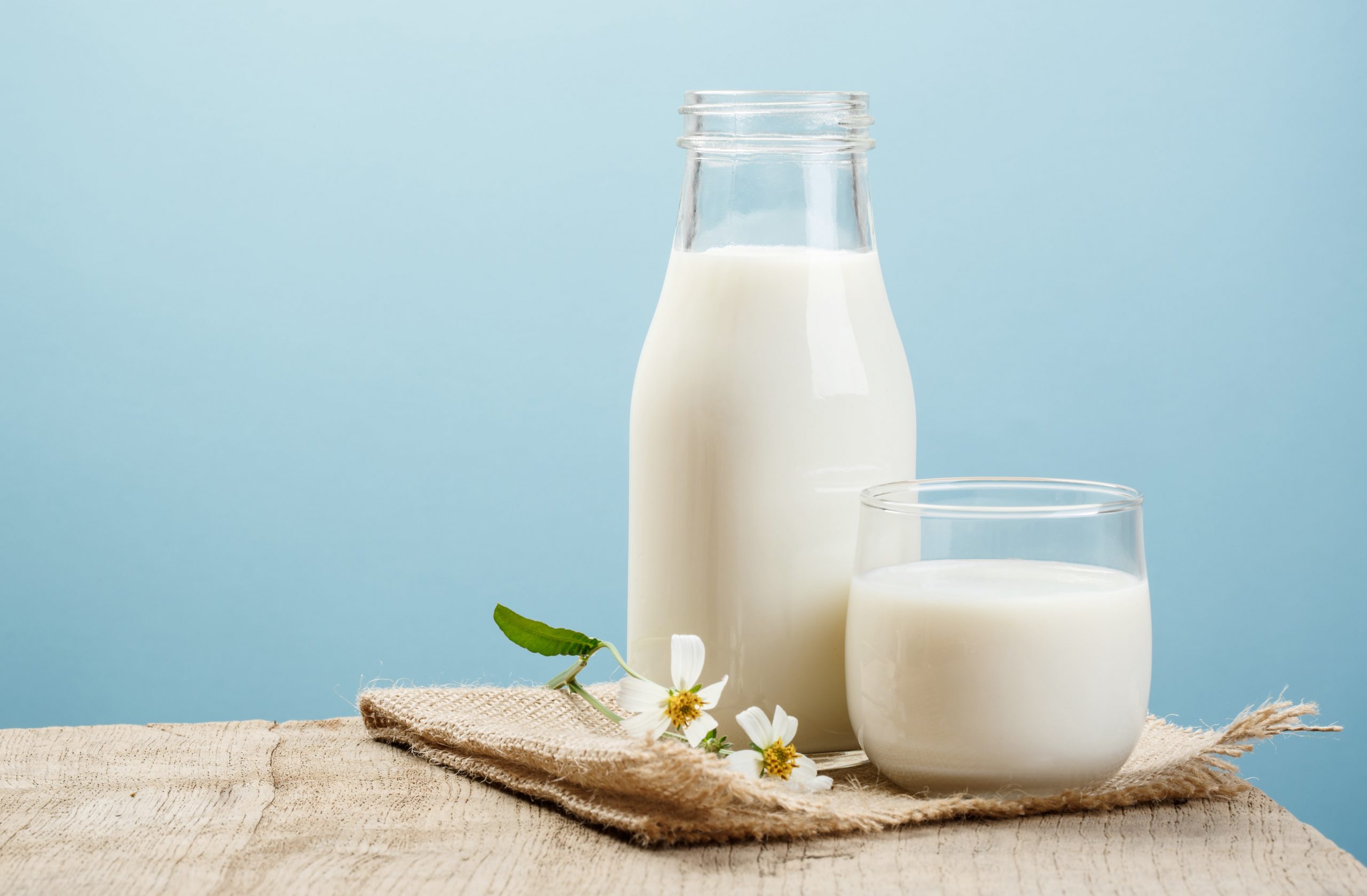Do you love drinking milk? You might be glad to know that the different types of milk, from skim milk, whole milk to low-fat milk, have different milk fat content and some amazing benefits.
As a milk lover, all you want to do is enjoy the variety that nature provides. Over the years, many have done this, and you too can. Whether it comes from a cow, goat or sheep, the benefits are tremendous, and you can take advantage of this. Also, there are different types of milk you can choose from. However, what exactly are they, and how do you tell the difference? To find out more about this nutritious beverage common to many, the types, potential benefits, and when to be cautious,keep reading.
Types of Milk
When you walk into the dairy section of your grocery store, you are likely to get different types of milk. The variation is a result of the amount of fat content in them. Besides, this is where the battle between your taste buds and better food choices come in. The following are types of milk;
Whole Milk
Many people would normally settle for this when shopping for dairy products. However, what is whole milk? This isunadulterated milk. Even when processed, it is not far from what the cow produces. Moreover, around 87% of it is made up of water and 3.25% milkfat. Wondering what milkfat is? It is the amount of fat by weight contained in milk. This type of milk has minerals, vitamins, sugars, and proteins. Additionally, an 8-ounce glass of it contains 150 calories and 8 grams of fat.
Benefits of Whole Milk
If you have been battling weight loss, you probably want to consume foods that do justice to your waistline. Therefore, you might be obsessed with drinks, beverages, or foods that have low-fat content.
The good news is, whole milk has been linked to reducing the risks of obesity. How? You wonder. After all, it has many calories and a high milk fat content. This type of milk makes you more satiated. Therefore, you will end up getting the calories from fat rather than your carb intake.
Additionally, whole milk contains vitamins A,D, E, and K, which are fat-soluble. Therefore, whenever you drink it, these vitamins enter your digestive system with fat and get to be absorbed.So, this type of milk gives you a good packaging of fats to enjoy and vitamins as well. However, since the number of saturated fats in it is high, around 4.5 grams in a cup, your healthcare professional might warn you against it and recommend low-fat milk instead.
According to a study conducted in 2016, it was reported that consumption of milkfat from any milk doesn’t increase your chances of getting heart disease. However, you could be at risk. So, what should you opt for? Rather than choosing dairy and animal fats constantly, why not go for vegetable fats? Also, if you are a cheese lover, you can substitute it with nuts. Taking these steps can help lower your heart disease risk by nearly 10%.
Low-Fat milk
Low-fat milk and whole milk might at times be confusing. However, the difference between the two is seen in the amount of fat each serving contains and the calorie content. In every 8-ounce glass of low-fat milk, there are 100 calories and 2.5 grams of fat.
Benefits of Low-fat Milk
One study shows that an increase in dairy food servings you consume as an adult increases your calories. This results from the saturated fats in these products. However, since you want to get the nutrients in them, you might opt for low-fat milk instead. It will help you get the protein, calcium, magnesium, and other vitamins essential to your body without consuming too much fat.
Additionally, research conducted in Spain on adults who consumed low-fat milk reported positive results concerning high blood pressure. They were found to have reduced risks of developing this condition compared to individuals with reduced intake of this similar type of milk. This can be linked to the proteins in low-fat milk, such as caseins and whey, which react similarly to drugs that help lower high blood pressure.
However, what about the calcium in low-fat milk? Can it trigger high blood pressure? As much as it has been a suspect, calcium from this type of milk is related to lowering your risks of developing high blood pressure.
Additionally, since low-fat dairy contains calcium, your bone health can thank you. When you consume it, your bone density increases. Therefore, you can incorporate low-fat milk into your diet.
Skim Milk
Skim milk is an option for those who want similar nutrients in whole milk but with very low calories and fat content. However, be prepared for an otherwise less delicious taste.First, how about you discover how skim milk is made?
This type of milk is made by removing all the fat. Normally, the milk fat content is less than 0.5%, and it contains 8 grams of proteins. Also, it has 83 calories, calcium, vitamin D, saturated fat, protein, and carbs.
For many years, it has been considered the healthiest option to go for when you want to take this beverage. However, is it always so? First, it contains powdered milk made using oxidized cholesterol. This can harm your arteries since it might lead to plaque build-up.
Furthermore, some add flavors to the skim milk to sweeten it so that kids can enjoy it. This adds no nutrients to your body.
Benefits of Skim Milk
However, if skim milk doesn’t seem so healthy, does it mean it has no benefits attached to it? Think about the moment you need a low-calorie intake in your diet. At this point, skim milk comes in handy.
Additionally, it is thought to help in weight loss. However, you might end up gaining weight after some time, so be cautious.
Conclusion
If you are torn between the type of milk to choose at the store’s dairy section, you have some things to consider. Rather than always going for the taste, why not think of the nutritional benefits instead? When you have the right information on skim milk, whole milk, and low-fat milk, you can go ahead and choose the one with the right milkfat content. Your health provider can help if you have a condition already.
- Chickpeas vs. Garbanzo Beans: What’s the Difference? - April 19, 2024
- How to Manage or Improve Anxiety - September 21, 2023
- The birth of a company - July 29, 2023









